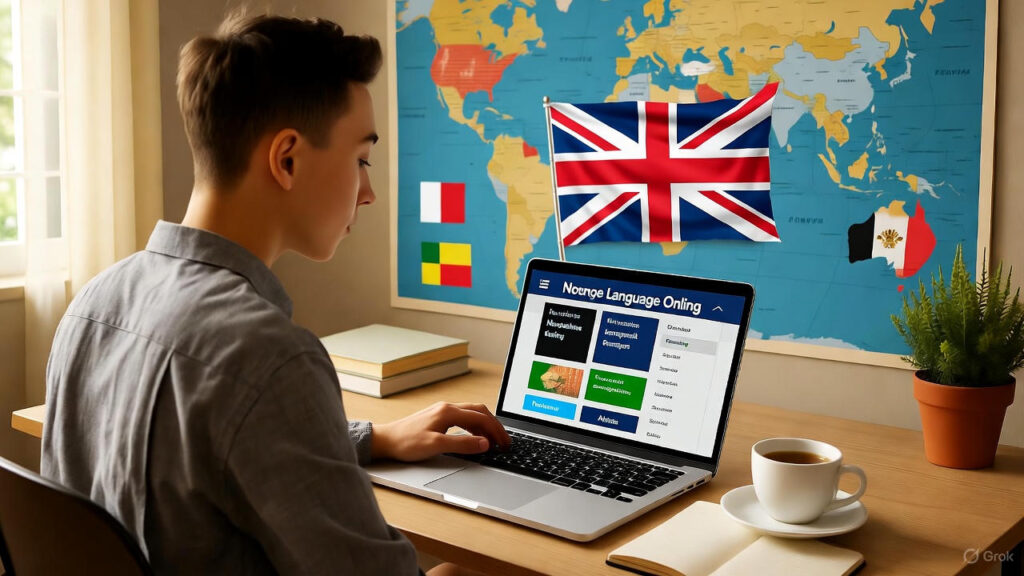
Discover how to learn a language effectively with this practical guide! Learn step-by-step strategies to master new languages.
Mastering How to Learn a Language Effectively
Learning a new language opens doors to culture, travel, and career opportunities. Whether it’s French, Spanish, or Mandarin, consistency and the right methods lead to fluency. This guide offers practical steps to start, with noticeable progress in 3-6 months. Set a goal—e.g., basic conversation—and begin with daily practice.
Assessing Your Goals and Level
Define your purpose and starting point.
- Decide why: Travel, work, or personal interest.
- Test your level: Use free online tools like Duolingo’s placement test.
- Set targets: Learn 50 words weekly or hold a 5-minute chat.
Tip: Choose a language with local relevance, like Welsh or Polish in the UK.
Building a Learning Routine
Create a consistent study plan.
- Dedicate 15-30 minutes daily—morning or evening works best.
- Use apps (e.g., Babbel) or textbooks for structure.
- Mix skills: Vocabulary, grammar, listening, speaking.
- Review weekly to reinforce memory.
Tip: Use flashcards (e.g., Anki) for quick word recall.
Practising Language Skills
Develop all areas of language use.
- Listening: Watch UK-subtitled films or listen to podcasts (e.g., BBC Languages).
- Speaking: Practise with language exchange partners via Tandem.
- Reading: Start with children’s books or news (e.g., The Guardian in target language).
- Writing: Keep a journal or message native speakers.
Tip: Mimic native pronunciation with tools like Forvo.
Engaging with Native Speakers
Immerse yourself in real conversations.
- Join local language meetups or online groups (e.g., Meetup.com).
- Hire a tutor via platforms like iTalki for personalised lessons.
- Practise with friends or family learning the same language.
- Attend cultural events in the UK (e.g., French film festivals).
Tip: Record conversations to review mistakes.
Tracking Progress and Adjusting
Monitor and refine your skills.
- Test fluency monthly with apps or quizzes.
- Adjust focus—more speaking if weak, more vocab if needed.
- Celebrate milestones, like your first full sentence.
- Explore advanced resources as you improve (e.g., literature).
Important Considerations
- Be patient—fluency takes years, basics take months.
- Avoid over-reliance on translation apps.
- Use correct accents for clarity.
- Balance fun and discipline.
- Respect cultural nuances in language use.
Learning a language is a rewarding journey. Follow these steps to build skills and confidence. Start today!
FAQ:
Q: How long does it take to learn a language?
A: Basic conversation in 3-6 months; fluency in 1-3 years.
Q: Which app is best?
A: Duolingo for beginners, Memrise for vocabulary.
Q: What if I lose motivation?
A: Switch methods or join a study group for support.
